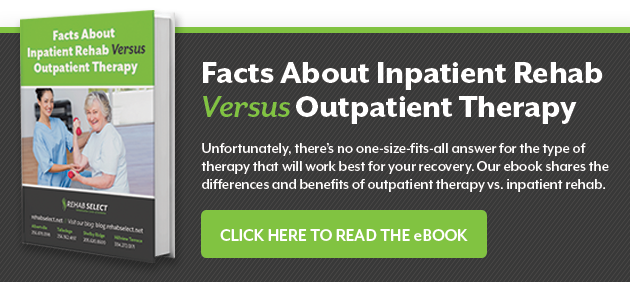
Thirty million people in the United States are living with chronic kidney disease. The condition, also known as chronic kidney failure, involves the progressive loss of kidney function. The kidneys usually filter waste and excess fluid from the blood; if they fail, waste and other fluids can build up in the bloodstream, causing severe illness and potentially death.
According to the Mayo Clinic, the symptoms of chronic kidney disease may not become evident until kidney failure has already begun. Treatment will usually focus on reducing the rate of kidney damage. Eventually, patients will usually require dialysis (in which a medical device is used to filter the blood in the way that healthy kidneys do) or a kidney transplant. Chronic kidney disease may have many causes, but two-thirds of cases are caused by either high blood pressure or diabetes.
Why are Hospital Readmissions So Common with Chronic Kidney Disease?
Hospital readmission is shockingly high for patients with chronic kidney disease. For example, 30% of patients with end-stage kidney disease are readmitted within 30 days of discharge from the hospital. Research published in the Clinical Journal of the American Society of Nephrology suggested that these high readmission rates could have several causes:
- Patients with chronic kidney disease have complex medical regimens to manage upon discharge, and may fail to adequately maintain their medical treatment;
- Patients may fail to adhere to lifestyle recommendations, such as dietary changes or fluid intake levels;
- Discharge planning for patients with chronic kidney disease may be uncoordinated or even inadequate;
- Patients may not receive sufficient support from their carers, or the carers may not understand how best to care for the patient;
- Patients may be prescribed medications which conflict with their existing medical regime and cause health issues;
- Patients may have low health literacy and may not receive effective guidance on how to look after themselves when they leave the hospital.
The researchers particularly flagged up that patients with late-stage kidney damage may also be experiencing cognitive impairment as a result of their illness. In some cases, family members and even medical professionals may fail to notice mild or moderate cognitive impairment, but the resulting forgetfulness may make it much harder for patients to manage their medications or change their habits without significant support.
5 Ways to Reduce Hospital Readmissions
So, what can be done to help chronic kidney patients avoid hospital readmission? Fortunately, researchers have identified several ways to reduce readmission rates:
1. Improved Medication Management
A study published in the American Journal of Kidney Diseases found multidisciplinary medication therapy management (MTM) reduced hospital readmission for dialysis patients by 48%. MTM programs involve a three-step process: firstly, a nurse reviews the patient’s prescribed medications and makes sure that there are no conflicting medications or inaccuracies in the prescriptions; secondly, a pharmacist reviews the medications to identify any potential issues; and finally, a medication action plan is created for each patient, with specific recommendations for the patient’s physician to consider. These programs are designed for chronic kidney patients after they are discharged from the hospital to avoid readmissions to the hospital for reasons relating to the patient’s prescribed medications.
2. Improved Patient Self-Care
While chronic kidney disease may not always be curable, there is plenty that patients can do to manage kidney disease and stay as healthy as possible. Recommended changes might include:
- Managing high blood pressure with medication – high blood pressure can be a cause of kidney failure, and may also be caused by chronic kidney disease as the kidneys fail to remove excess fluids and electrolytes from the bloodstream;
- Managing diabetes with medication if that has been the cause of chronic kidney disease;
- Using medications and dietary supplements like calcium or vitamin D to control kidney disease complications like high cholesterol, anemia, edema, weak bones, or high phosphate levels;
- Following a low-protein diet designed by a professional nutritionist, so the kidneys don’t have to work as hard to filter waste products from the body;
- Actively learning about chronic kidney disease and the symptoms that might lead to hospital readmission.
3. Increased Family Education
Given the cognitive impairments that can be caused by chronic kidney disease, those involved in caring for the patient at home must be aware of the patient’s treatment plan and needs. Involving family members in post-discharge patient care is generally associated with better patient adherence to treatment and improved patient outcomes; for instance, one study found that strong family caregiver engagement in the patient’s treatment cut hospital readmissions by 25%. Unfortunately, the Joint Commission has found that medical professionals are not always effectively involving family members and caregivers, or indeed the patients themselves, in the discharge process:
“Patients or family/friend caregivers sometimes receive conflicting recommendations, confusing medication regimens, and unclear instructions about follow-up care… As a result, they do not buy into the importance of following the care plan, or they lack the knowledge or skills to do so.”
Ensuring that both patients and their loved ones have a clear idea of how to manage chronic kidney disease at home will help keep those patients out of the hospital.
4. Improved Transitional Care
Of course, family involvement is not enough to reduce hospital readmissions. Chronic kidney disease is a severe condition that requires consistent medical treatment and supervision. Research has shown that patients who had a follow-up visit with their physician within a week of hospital discharge were significantly less likely to return to the hospital within 30 days. However, for chronic kidney patients, outpatient care may not be enough. For those patients, an inpatient transitional care program in a rehabilitation center or skilled nursing facility may have significant advantages; for example, one study found that a nurse-led transitional program reduced 30-day readmission rates by 48%.
5. Inpatient and Outpatient Rehab Programs
In fact, for many patients with chronic kidney disease, they may find that managing their condition will be most comfortable in rehab or skilled nursing setting, instead of shuttling between the home and the hospital with every health crisis. In a post-acute treatment facility, the patient will learn how to care for themselves and manage the symptoms and side effects of kidney disease. A comprehensive treatment program can be designed to help them manage the physical, cognitive, and emotional aspects of their illness and improve their quality of life. Many skilled nursing facilities now offer inpatient dialysis sessions on the premises, meaning that patients can remain in a more comfortable and convenient setting for their dialysis treatment, and incorporate their dialysis into their usual daily routines. An additional advantage of treatment in a skilled nursing or rehab facility is that continuity of care is easier to provide; patients receive care from the same medical professionals daily, ensuring that all their needs are met and that their healthcare team can easily coordinate their care.
To learn more about the services Rehab Select can offer to patients with chronic kidney disease, please visit our website or click here to contact us.





